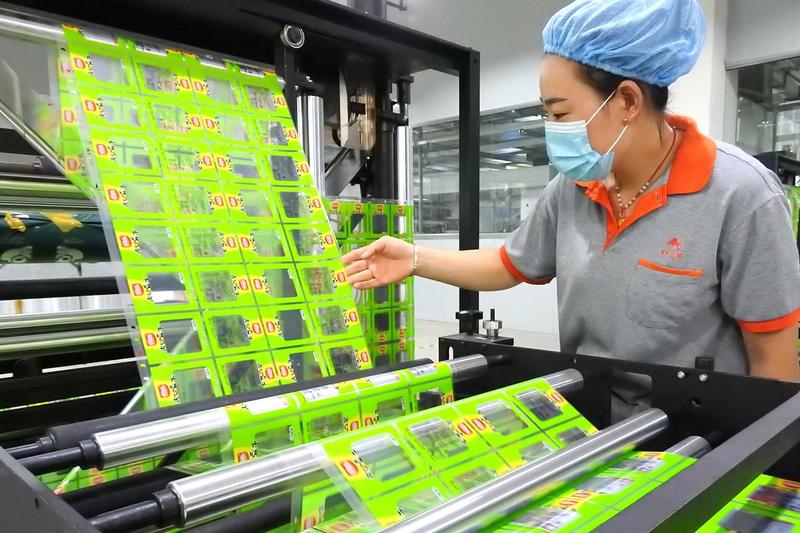 In this undated file photo, an employee supervises the production line of plastic packing materials at a small company in Lianyungang, Jiangsu province. (PHOTO BY GENG YUHE / FOR CHINA DAILY)
In this undated file photo, an employee supervises the production line of plastic packing materials at a small company in Lianyungang, Jiangsu province. (PHOTO BY GENG YUHE / FOR CHINA DAILY)
Small and micro enterprises in China have been recovering steadily, thanks in part to their resilience and favorable government policies, the nation's top industry regulator said on Tuesday.
Wang Jiangping, vice-minister of industry and information technology, said from January to April this year, the operating income of small and micro enterprises grew by 32.3 percent on a yearly basis.
Electricity consumption of small and micro enterprises increased by 7 percent in April on a yearly basis and by 6.2 percent from the level in 2019, according to data from Wang's ministry, State Grid Corp of China and China Southern Power Grid.
Small and medium-sized enterprises (SMEs) are the main driving force of the country's productivity and the main stabilizer for employment and the industrial chain. Supporting SMEs is crucial to reducing vulnerability and ensuring a steady economic recovery.
Wang Xiaolu, senior researcher with the National Economic Research Institute
Wang said since the beginning of this year, the central government has introduced more targeted preferential policies for small and micro enterprises. "In general, the business environment for small and micro enterprises is continuously improving, and their production and operations have recovered and moved toward stability."
Due to the complex changes in domestic and foreign situations, small and micro enterprises are facing difficulties and problems such as rising raw material prices, tight funds, insufficient orders, and difficulty in recruitment. The sustainable development of small and micro enterprises is still facing relatively big pressures and challenges, said Wang.
ALSO READ: Innovative SMEs to get policy boost in financing
To better encourage small and micro enterprises, the ministry will continue to pay close attention to the new situation and new problems they face and focus on the three areas of "policy system, service system, and development environment" to help them.
Wang Xiaolu, a senior researcher with the National Economic Research Institute, said: "Small and medium-sized enterprises are the main driving force of the country's productivity and the main stabilizer for employment and the industrial chain. Supporting SMEs is crucial to reducing vulnerability and ensuring a steady economic recovery."
Around 50 percent of the nation's tax revenue and 60 percent of China's GDP come from SMEs. The latter are also responsible for 70 percent of technology innovation and 80 percent of urban employment in China, according to the Ministry of Industry and Information Technology.
Most small and medium-sized startups in China are confident in their ability to innovate despite intense competition, market uncertainties and challenges created by the COVID-19 pandemic, said a report released by the US tech heavyweight HP and Peking University's Guanghua School of Management last year.
About 92 percent of the 605 surveyed SME startups said their innovation capabilities are better than their peers, showing confidence in their own prowess.
READ MORE: Consumption, healthy SMEs vital for 2021 growth
Gao Yan, a professor at the Guanghua school, said amid mounting difficulties, both internal endeavors and external support are needed to help SME startups overcome challenges. Favorable government policies, strategic guidance from academic research institutions and large enterprises' support are also needed.
Ma Bingying contributed to this story.


